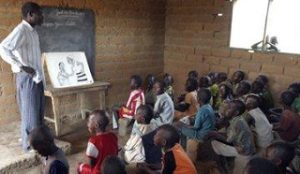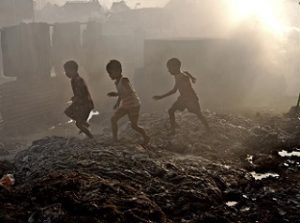
Arquivo para a ‘Calm Technology’ Categoria
Look at the signs of the times with serenity
In spite of all the fatigue, an active stimulus, the overload of work and even of emotions, it is possible to find shortcuts to a simple and well-lived life, even in times of sharpness.
it is possible to find shortcuts to a simple and well-lived life, even in times of sharpness.
The first essential step is to have the right diagnosis, so many self-help books, good nutrition, recipes of happiness that do not seem to move people from anxiety, fear, anguish, and with increasingly serious syndromes like Burnout.
Diagnosis is a society that has pushed us to a job, not only functional but necessary, but with additional burdens of political, social, religious and even family activism as being “necessary” to live well.
There is no room for contemplation, even for rest, for leisure activities, because in them we also put more activism, endless queues of cars for beaches, fields or other retreats that are nothing more than to lead the agitation in the suitcase.
We do not know how to read the signs of the times, and with this activism only increases the emptiness and the sense of concern, the diagnosis already pointed out by Nietzsche has a recipe in Kierkegaard to return to being what we are, and from there to change and evolution with serenity .
The apocalyptic will say signs of the times, the pragmatics will say humanity is thus, always was and always will be, incapacity to read the times, non-fundamentalist reading about the end times “Take care that your hearts are not insensitive because of gluttony, of drunkenness and worries of life, and that this day does not suddenly fall upon you “(Lk 21:35), can serve for our times well before the end of the world that will be delayed.
It does not matter if this would be the end of time, the problem is to become insensitive, or still intoxicated or too preoccupied with life, it becomes obscured.
Serenity, diagnosis and education
The apparent cause of our day-to-day problems seems to be the latest advances, innovations, social life, social media “media” and human work in many areas, we embark on the easy discourse of liquidity, hypercommunication, and excess information, this diagnosis is correct.
innovations, social life, social media “media” and human work in many areas, we embark on the easy discourse of liquidity, hypercommunication, and excess information, this diagnosis is correct.
With the wrong diagnosis, we prescribe the wrong medicine, put more exercise into our lives, an exercise life, Sloterdijk would say, more natural food and more active life for it, fault of diagnosis error and absence of a clear future.
The clearing can only come from the thought, the appeal to practice is the worst remedy we have not have a weekend of rest and recreational activities because there are matters “urgent.”
The diagnosis of this current drama was already in Nietzsche (1834-1900), wrote in Human too Human: “For lack of rest our civilization is headed for a new barbarism. At no other time did the assets, that is, the restless ones, avail so much. Thus it belongs to the necessary corrections to be made as to the character of humanity to greatly strengthen the contemplative element, ‘a clear indication of the date of the present problem.
It may even be earlier, Kierkegaard (1813-1855) wrote: “the remedy for anxiety is to be as we truly are,” pointing out at the beginning of modernity the ontological problem of which humanity suffers a great deal, wanting to be what one is not , even if the daring and the search for new horizons is good, it must be done in solidarity with the Other.
The diagnosis, said Priest Manuel Antunes, whose birth celebrated 100 years on November 3, is to counter the homo mechanicus, the fruit of modernity, which created what the Portuguese wise man called “foam man”: light, without consistency, without fidelity and without strong convictions.
The education that must follow must be highly dialogic, comprehensive and transdisciplinary, defended Father Manuel Antunes, defend Edgar Morin, Basarab Nicolescu and so many others, however a method is necessary so that it does not stop in the speech.
The method proposed by Gadamer in his reading of Heidegger is the hermeneutic circle, the possibility that from preconceptions we arrive at a fusion of horizons and a greater possibility of re-reading of the present time, outlining ways for the future.
Serenity and a sonata to Kreutzer
Serenity was the theme of a speech by Heidegger on the occasion of 175 years since the birth of composer Conradin Kreutzer in Messkirch on 30 October 1955, but the same Kreutzer was worthy of a novel entitled Sonata a Kreutzer by Leon Tolstoy, which tells the dialogue about marriage on a train trip, in a position that is almost antagonistic because there is a climate of suspense between both that causes intrigue and pessimism.
birth of composer Conradin Kreutzer in Messkirch on 30 October 1955, but the same Kreutzer was worthy of a novel entitled Sonata a Kreutzer by Leon Tolstoy, which tells the dialogue about marriage on a train trip, in a position that is almost antagonistic because there is a climate of suspense between both that causes intrigue and pessimism.
Heidegger’s thinking will be demarcated by two of his writings: Serenity, 1955, and another from a conversation about thinking that took place on a country road, 1945, where Heidegger chronicles a long dialogue between three characters, the Researcher , the Scholar and the Teacher, on the question of thinking.
The starting point about thought can be What is metaphysics? Written in 1929, where Heidegger says: “it is by no means the most accurate thought,” precisely because it is attached to the ultimate goal of calculation, which ” reduces all countable to enumerated, for use in the next enumeration. The calculation admits nothing but the enumerable, “this comes against the neologism of the Vienna Circle, and algorithms.
What causes in thought this logic is the pretense of all encompassing and submitting, calculating thinking “can not suspect that all calculable calculus is already, and before its sums and products, in a whole whose unity undoubtedly belongs to the incalculable one that is subtracted from itself and its strangeness from the clutches of calculation “(Heidegger, 1943, 248).
There are, therefore, two types of thought, both being in their own way, respectively, legitimate and necessary: the thinking that calculates and the reflection (of the Nachdenken) that meditates. […] a thought that meditates arises as spontaneously as the thinking it calculates. Thought that meditates sometimes requires a lot of effort. It requires a long workout. It lacks care even more delicate than any other real craft. However, like the farmer, he must also know how to wait for the seed to rise and mature. “(Heidegger, 1955, pp. 13-14).
What Heidegger is going to explain in this work is that the relation between thought and will, in conflict and from where Nietzsche part to his reflections, is not evoked according to tradition, the representational thought that already has in itself one of the forms of the will.
According to Heidegger, the form of liberation of thought, which enables form (we would say thought) in the approximation of things, there is a non-objectifying, non-appropriatory approximation marked first of all by a “awake to serenity” .
It may seem, but it is not passivity, for the act which lies at the core of serenity is of a higher order than that of the usual human machinations which sends action, it does not necessarily imply activity as it is commonly understood.
For the thinker this elevated form, which although the day is not associated with meditation and contemplation, is mistakenly associated with a weakness of want, serenity, since it would be fundamental to restrain itself as a path of meditative thought is presented by Heidegger as the highest form of human action, so necessary these days.
Serenity is rather a restraint to mere impulse, anxiety and compulsory action.
HEIDEGGER, Martin. Serenidade. Tradução de Maria Madalena Andrade e Olga Santos. Lisboa: Instituto Piaget, 1955.
HEIDEGGER, Martin. Que é metafísica? In: Os Pensadores. Tradução de Ernildo Stein. São Paulo: Abril Cultural, 1973.
Pause time: can we
There is still a remnant of November and December already appearing on the horizon, everyone is waiting for something we should always do: pause, wait and meet with friends and family, the question is: do we succeed?
everyone is waiting for something we should always do: pause, wait and meet with friends and family, the question is: do we succeed?
Looking at the world, the dark signs continue, bigger than liquids, because if something were really changed from the solid to the liquid, it would even be desirable because something is moving, but it seems like the sameness, everything is going to look the same.
The protests against Macron and his taxes, is not so different from Portugal or Brazil, the state is huge and weighs on society, who will pay the bills, and the retirees will be the ones who will pay the bill? uncertainties and a single thing really clear: crisis of time.
There are signs of a revival, a word used by the philosopher Martha Nussbaum, I would say yes, but just where the heaviest criticism falls: the globalized world, the internet and the “solid” state that is taking a darker, dangers right.
I participated in a 100 year event of Priest Manuel Antunes, this transdisciplinary man, was the theme of a lecture written with a friend in his work Repensar Portugal, said that it was necessary to seek in politics, the “temperate zones” where human nature is more comfortable, but the 2018 sample is from more radicalized regions, in the bad sense of the term.
It is necessary to pause, even when forced and in discomfort, to look at the future so that it is possible to have hope, peace and a closer approach of the peoples, the national radicalism is perverse, Europe sews a possible agreement for the exit of England from the block , the so-called Brexit.
The US ends the end of the year with the dreamed Trump Wall, and Mexicans pushing across the wall, proving that it was not a solution but the announcement of a crisis.
New governments to the right in Brazil and Colombia, the left in Mexico wins after many years of a party monopolizing power, while Nicaragua and Venezuela parade catastrophic left-wing governments, Bolivia, Ecuador and Uruguay are in temperate zones.
Thinking about a more integrated world, climate issue and income distribution has become more difficult, what can be expected is a vigorous reaction of human thought, man has always been able to face the challenges that have appeared, perhaps the retreat is a resumption
Simplicity and depth: modern proble
I learned in childhood with the simplicity of my father that there may be wisdom and deep thought where there is no erudite culture, reason is very simple, some people have been immune to the contamination of rationalist, enlightenment and idealistic arguments.
contamination of rationalist, enlightenment and idealistic arguments.
This is because much of the common sense has in mind these reasonings, for example, the mechanistic view of cause and effect relationship, no longer true with quantum physics, the arguments used much as contemporary self-help is contested by the poet Fernando Pessoa: “wanting is not power”, for the simple fact that there is the Other, but in the poet’s argument:
“Whoever could, wanted before he could [only] after being able “, but concludes:” whoever will never be able to, want, “might add to the meekness of the previous post.
As for depth, it is not a thinker or a philosopher who reads thinkers or philosophy, but who has learned through listening and reading training, also to meditate, to think of contemplation, almost impossible in noisy and anxious times.
You can think when you have time for this, when you can feel the Aroma of Time, says in the book by this name Byung-Chul Han: “the aroma is not of a timeless eternity”, but of a strategy of duration, we would say of time dilation by the contemplation and acquiescence of Being, so necessary to modern life.
This may seem to be too costly, to use the time not to “spend” it not to “use” it, but rather to use time in a non-consumeristic or utilitarian way, such as the time of Being.
And simple people, because they have learned in their simplicity to appreciate a landscape, a flower or even a good song or a beautiful picture, are actually educated to be.
I remember my father in his childhood saying, “It is better to light a candle than to curse the darkness,” then it seemed provincial and too simplistic, but it was pure wisdom: the glade.
In biblical terms, it is my hermeneutic interpretation of the “poor in spirit,” in a sense that lets facts pass clearly and meaninglessly and plunges into the essentials. Said the multifaceted artist Leonardo da Vinci: “Simplicity is the ultimate degree of sophistic
Time of being
There is a time of not being, we are complaining today of the acceleration, but Chul-Han’s diagnosis in The burnot Society is not so distant from that made by St. Augustine 14 centuries ago: “What is time? How are the past and the future, since the past is no longer and the future is not yet? “And the present? We barely say “now” and it has already fallen in the past “, this in a time when neither the technology of the press existed, what changed then?
diagnosis in The burnot Society is not so distant from that made by St. Augustine 14 centuries ago: “What is time? How are the past and the future, since the past is no longer and the future is not yet? “And the present? We barely say “now” and it has already fallen in the past “, this in a time when neither the technology of the press existed, what changed then?
Salvador Dali’s picture gives us an idea about the “persistence of memory” and the right to forgetfulness sanctioned by the European Union court on May 13, 2014 gives the diagnosis of a modern “disease”: hyper connectivity, in a Brazilian slang: we enter the “stack”.
The aid of machines that should give us rest periods in transmitting part of our work to them, and being able to perform long tasks faster should give us rest, but we no longer know how to have the period of contemplation and leisure, it seems to be “a time lost”.
We blame this acceleration for the machine of efficiency, concentration of capital, and other phenomena that predate the internet, there are many authors of the last century who touch the subject, after all Paulicéia Desvairada (Crazy people of St. Paul) (write in 1922) is a well-known novel of Mario de Andrade of 1922, and the first studies of the information explosion in the area of science date back to the 1940s.
Says Mário de Andrade about the artist in his poem dedicated to this:
My desire is to be a painter – Lionardo.
whose ideal in mercy heats you;
making the open to the world of the wide corolla
illustrious dream that I await in my bosom.
My longing is, bringing to the dark background of life.
The color of the Venetian school,
give shades of pink and gold, for alms.
how much there is of Penedia* or thistle.
When you find the source of the inks
and the exalted brushes with which you paint,
Veronese! your pictures and your friezes.
I will live where misfortunes live;
And I’ll live to color smiles.
on the lips of those who imprecate or who weep.
It may be a hard time to do poetry, or to contemplate, but we cannot let the Self-die because of a Time whose fragility is always gone. * (type of rocks group)
The expulsion of the Other
Byung-Chul Han’s gaze on contemporaneity could not be more authentic for the author of  , the Salvation of the Beautiful and the Aroma of Time, among other books of course, but has in its first pages the relationship with all this and the beautiful: “If a flower had in itself its ontic fullness, it would not need to be contemplated” (Han, 2016, 13), this sentence is paradoxical but it is not, it is in his book “A expulsão do Outro” (the expulsion of the Other) (Han, 2016).
, the Salvation of the Beautiful and the Aroma of Time, among other books of course, but has in its first pages the relationship with all this and the beautiful: “If a flower had in itself its ontic fullness, it would not need to be contemplated” (Han, 2016, 13), this sentence is paradoxical but it is not, it is in his book “A expulsão do Outro” (the expulsion of the Other) (Han, 2016).
The author analyzes the question [in Max Scheler] of Saint Augustine to attribute “in a strange and dangerous way ° a necessity to plants:
“That men behold them, as if, through a knowledge of their being guided by love, they experienced something analogous to redemption” [Han apud Scheler, 2016, p. 13).
Han clarifies that knowledge seen in this way is redemption, but it should be noted that there is no way in this form to separate subject from object in contemplation, which is discussed at length in his other book, The Society of Fatigue. object while another.
In this the author distinguishes the simple news or information, “to which the dimension of otherness is utterly lacking” (idem, page 13), that which would be able to reveal a new world, a new understanding of what it really is, suddenly that the new one appears (idem).
Going back to Heidegger, he asserts that all this false objectivity means nothing other than “otherwise this blindness to events” (Han, 2016, 14).
Although his view is excessively pessimistic about the network and the digital, he is right in saying that “proximity brings in itself distance as its dialectical opposite. The elimination of distance does not generate more closeness, but rather destroys it “(Han, 2016, p.15) and pronounces it categorically, which in the absence of distance or the identical that it creates contains life.
He retakes the theme of another book “The Agony of Eros”, saying that “in pornography all bodies resemble” and the body is reduced to sexual does not know anything else.
He makes a quick analysis of the animation film Anomalisa (pictured above) made by Charlie Kaufman in 2015, which reveals the hell of the identical, puts the painting Golconda by René Magritte, the Belgian surrealist in his book “Swarm”.
The book also analyzes the terror of authenticity, fear and alienation before analyzing the language and thought of the Other, modern thought is nothing else as a consequence of the “forgetting of being”, the separation of subject and object, expulsion from the other.
HAN, Byung Chul. A expulsão do Outro (portuguese edition). Lisbon: Relógio d´água. 2016.
Fight for peace, meekness and justice
The history of mankind is to this day a war story of the Same against the Other, the book The Expulsion of the Other by Byung-Chul Han is nothing more than the realization of this reality. It is our destiny, a fatality, I think not, when peace has been spoken of most, if war is spoken of, peace can be thought of, the Earth as a human homeland.
the book The Expulsion of the Other by Byung-Chul Han is nothing more than the realization of this reality. It is our destiny, a fatality, I think not, when peace has been spoken of most, if war is spoken of, peace can be thought of, the Earth as a human homeland.
The challenges are immense, and fears grow with each new authoritarian government, it is good to say there are also islands of the left and right-wing stronghold that are only “elected” people.
I do not think of resistance or opposition, I still think of transformation, the great setback that happens in all humanity, if it were located it would be easy to have only one reading: we can not go forward, the nostalgists say: “how good was those time” , which ?
To fight for peace must also be for justice and against all sorts of oppression, to magnify simple wisdom and to understand that it takes depth to be simple, a “sophistication” as Leonardo da Vinci said, and to establish a spirit of meekness where it is possible to think.
Not without realizing an excessive dose of authoritarianism is time to ask, what is the exact place of the state in everyday life? its abrupt interference even in the personal life is but a form of authoritarianism? we have cameras and radars every kilometer, it’s not an exaggeration.
Weapons for peace, does not make the slightest sense, more weapons more violence, never the other way around. They remember the biblical beatitudes Mt 5,5: “Blessed are the meek, for they shall possess the earth,” of course what you see today is power in the hand of rabid and authoritarian, but it is not the end.
The following long verse is practically a warning to justice Mt 5: 6: “Blessed are the hungry and righteous, for they shall be filled,” and further Matthew 5: 9: “those who promote peace, because they will be called children of God “, did humanism die? The fact that everyone, or at least a large part of humanity, has a perception that something needs to be done urgently to overcome the “dangers against humanity” challenges us.
There is an urgent need for global governance, not less urgent income distribution programs. The ecological collapse, and in the big metropolis also the urban demand global measures.
I remember the two beatitudes as a stimulus for those struggling for humanity suffer persecution, injustice and slander. Mt 5,11 “Blessed are you when they revile you and persecute you, and when they lie, they shall say all manner of evil against you for my sake,” that is Christianity, the rest wickedness
Because we walk tired it seems like a general theme
 One of these small books that we read and discover incredible things, was the book of Kazuo Ishiguro, Nobel Prize for Literature in 2017, his booklet My Night in the Twentieth Century.
One of these small books that we read and discover incredible things, was the book of Kazuo Ishiguro, Nobel Prize for Literature in 2017, his booklet My Night in the Twentieth Century.
His speech at the Swedish Academy on receiving the award tells of his childhood in a district of England, his early works, the discovery of Marcel Proust, no doubt an influence on his novels, but something caught my attention, consider himself a tired writer.
He had already read in The Bournot Society of Byung-Chul Han’s exhaustion contemporary diseases such as depression, hyperactivity, Bournout Syndrome, anxiety and others that appear to be the landscape at the beginning of the twenty-first century.
Chul Han’s recipes are to try to regain the contemplative vitta, Edgar Morin will talk about conviviality and educate for life, but the bottom line is where this fatigue comes from.
The easy answer is technology and life runs from day to day, but the first is an easy answer to what has been going on for 20 years at most and the problem is earlier, the second is simplistic, perhaps for the early man In the last century, everyday life was rampant and convivial. In post-war Japan people took stress in electronic machines and the rhythm was not a shadow of what it is today.
At last it seems that there is a problem really in the background, and this is linked to human existence, we could be happy thinking about the future life after death, this is not enough today, we could be happy thinking about a good marriage and a good salary, this today is little , something else is missing.
Philosophy called this existential-ontological problem, religion and a part of the thinkers called the “secular” Nietzsche called nihilism, and before him Kiegaard asked why there is everything and not nothing, or ask about what is evil.
Kieekegaard wrote in his book Human Despair, see that this is from the nineteenth century, more precisely in 1849 under the pseudonym Anti-Climacus, where he states that the origin of despair lies in the imagination, where man can create a fantasy relationship with himself , and in my modest interpretation, precisely in the society that wanted to remove from the scene the imaginary, the fantasy and the beliefs, according to the Enlightenment all in the field of “superstition”.
Nietzsche would agree with the post-Manichean Augustine of Hippona in saying “what is done out of love is always beyond good and evil,” and, therefore, more than art, contemplation, and life itself, is Love that can give meaning to everything, and for this we need to have “soul”.
It is not something fundamentalist or purely religious, but it means recognizing that beyond the objective, the human, and the concrete, we need some deep meaning for life, and this must undoubtedly be somehow linked to an impossible concrete as anything that is intended to be objective: Love gives meaning to life.
Zero UI – Interfaces of the Future
In the simplified definition of Andy Goodman Zero UI is the use of the perception of an object for the manipulation of an object projected in another environment – real or virtual.
use of the perception of an object for the manipulation of an object projected in another environment – real or virtual.
I call this multi-presence, because the real or virtual object is in another environment and is manipulated as if its presence were in a certain one, but the future of these environments will be the sharing as we saw in the previous post, so multipresencial.
I quote Andy Goodman not because he is a computer expert, but exactly what we need an education expert for an online world, he gives seminars on storytelling and storytelling, open education courses, director of the Fjord Solid group, where there are inúmeras Open4Education initiatives, and it supports collaboration on Google’s atap site.
If you want to understand the name, it is very simple, the phrase is from Golden Krishna: “the best interface is no interface”, this means a holographic and haptic interface that is manipulated in the air, and a “almost hidden” machine certainly provided with some artificial intelligence algorithm, receives the commands and performs the desired task.
Companies are eyeing, the Adobe blog, talks about interfaces without screens, and thinks of ultrahaptic interfaces, using ultrasound for touch perception and giving the user the necessary reaction to the touch so that he feels what he is doing.
Microsoft is advancing with its HoloLens project, despite the uncomfortable use of the promises of advanced advantages of its environment, in addition to a simple and powerful usability.
South Korea’s ETRI has announced the use of an international standard for Zero UI automatic interpretation interfaces that enables seamless interaction between users and smartphones without the need for a medium, the standard that should have a rapid expansion for smartphone users, can make a de facto standard and compel other companies to mold to this model.
Interfaces UI will be common use in a short time, forcing the conservative user to once again adapt or stay in the world without connection, there are those who prefer this.

